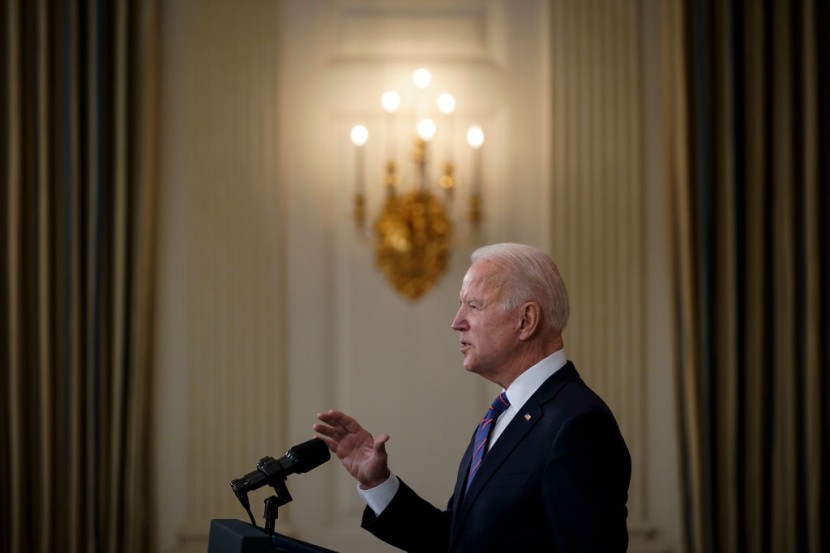The Biden administration announced the start of a 100-day initiative to strengthen the cybersecurity of the nation's electricity infrastructure.
On Tuesday, the Biden administration announced the start of a 100-day initiative to protect the electric grid from cyberattacks. The Biden administration's strategy was developed in collaboration with the Energy Department and the Cybersecurity and Incident Response Agency. The plan aims to assist electricity industry operators in modernizing their security processes and implementing emerging technology to identify and counter threats.
Biden administration starts rolling out a plan for cybersecurity improvement

The electric industry is subjected to cybercriminal threats regularly. During the pandemic, hackers, researchers, and government officials have had even more chances due to the transition to remote jobs, as per Washington Post via MSN.
Recent attacks on SolarWinds and Microsoft Exchange software, both of which impacted the electric industry, have reignited the need to modernize and protect the country's electric grid. Any owners and operators who continue to rely on equipment that is decades old and was not built with new cybersecurity threats in mind.
Officials and industry analysts have long warned of the possible destruction that a concerted assault by international adversaries on America's electric grid might cause. A Russian attempt on Ukraine's power grid in 2015 resulted in a massive outage and significant economic damages.
The administration's proposal could pave the way for further collaboration between the electricity company industry and the government. NERC's Electricity Information Sharing and Analysis Center is currently used by the industry to exchange risks.
However, others in the electric sector have expressed fears that the federal government does not support crucial vulnerabilities. Last year, the National Commission on Grid Resilience, a joint body of former government officials and electricity industry experts, called for increased hazard information declassification and a real-time threat monitoring center for owners and operators.
Biden Administration Backpedals, Says 'Crisis' Referred to Central America Problems, Not US Border
The US unveils plan to protect the electric grid against foreign hackers
The plan's announcement comes weeks after the administration was chastised for failing to include cybersecurity measures in the president's $2.25 trillion infrastructure package. In a statement to The Hill earlier this month, an administration spokesman teased the proposal, stating that the administration is committed to safeguarding the cybersecurity of U.S. critical infrastructure from ongoing and advanced attacks.
The Energy Department's Office of Cybersecurity, Energy Security, and Emergency Response (CESAR) will advance innovations to secure the electric grid as part of the program. And it is issuing a request for information (RFI) to enable the energy industry to weigh in on potential supply chain security recommendations.
After a 90-day suspension by the Biden administration, the Department of Energy declared that an executive order signed by former President Donald Trump last year to protect the grid would retake effect. It declared a national emergency in grid protection and took measures to protect the grid from foreign invasion. In a statement released Tuesday, Energy Secretary Jennifer Granholm emphasized the importance of collaborating with the private sector to combat "growing" cyber attacks.
Trump: Afghanistan Withdrawal Is 'Wonderful and Positive Thing to Do,' Mocks Biden's Timeline
The Edison Electric Institute, representing all investor-owned electric companies in the United States, applauded the White House strategy and the Biden administration's cybersecurity priority.
"Given adversaries' sophisticated and ever-changing challenges, America's electric companies remain dependent on protecting the industrial control systems that run the North American energy grid," said EEI President Tom Kuhn.
While an earlier draft suggested that the federal government assist small utilities and rural cooperatives in paying for the latest monitoring, the final version is less clear about whether the funds would come from the federal government or be passed on to consumers in the form of increased energy bills. Large utilities often have special security teams and invest in cutting-edge monitoring technology, but it is unknown how eagerly smaller utilities would accept the expense of increased security.
According to specifics of the plan outlined by a source familiar with it, the government will take input from utilities within 21 days on how to incentivize involvement in the voluntary effort. The final plan also abandons the draft's initiative to improve grid component supply protection by requiring a list of recommended equipment vendors. The Biden administration now intends to solicit suggestions for development from utilities.
Experts believe attempts to secure the U.S. electric grid are years behind more well-known efforts to protect data centers and corporate systems. At the same time, hackers from China, Russia, Iran, and North Korea are ramping up their attacks on American power companies in the hopes of harming them with malware that would leave cities and towns in the dark, as per Bloomberg via MSN.
President Joe Biden's Aim For Bipartisan Cooperation Applies Stealthy Pressure
© 2026 HNGN, All rights reserved. Do not reproduce without permission.








